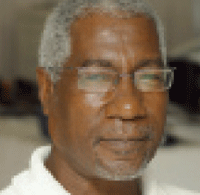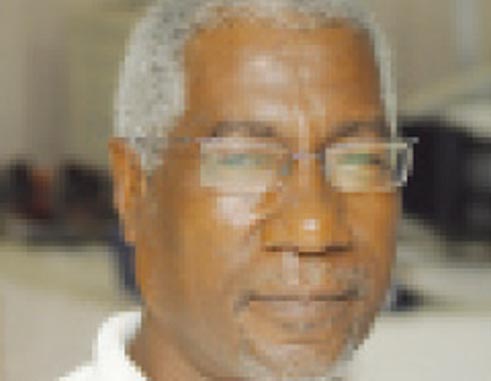
I DON’T really believe (like some already do) that the Report of the Constitutional Review Commission (CRC) was intended to be dead on arrival. Nor do I think it is dead. But it’s surely got an early beating from those MPs who’ve spoken on it in the Parliament – particularly the elected ones.
Naturally, the appointed Senators tended to be more measured in their analyses. Some went more overboard than others to sound independent. But generally, many of those who saw the Senate debate have been saying different things than they do about what they heard from the MPs in the House.
Yes indeed, there was understandable difference between the position adopted by members of the Upper and Lower Houses. But there was also some unanimity across both floors on some of the more contentious recommendations — especially those having to do with treatment of elected parliamentarians after winning an election.
Never mind some MPs were louder than others who were more subtle, I heard no elected MP throw his or her support behind the proposal that a MP who just won an election should resign if her or she is invited to become a Cabinet Minister. From the religious Education Minister to the raw Deputy Prime Minister to the academic Opposition Leader, each found different words and ways to say the same thing: that this proposal seeks to literally relegate elected politicians to the political garbage heap and render then no longer capable of being both a Government Minister and a District Representative.
Indeed, it did emerge – on both sides of one House – that there’s still a strong feeling among some (not all) MPs that only elected members should hold Cabinet positions. Fortunately, this is still so because every Prime Minister we’ve had so far has exercised his constitutional option to select persons from outside the winning team to sit in Cabinet. Sir John Compton went to his grave under pressure for appointing Ausbert d’Auvergne as his most senior Cabinet Minister. Ditto the current Prime Minister, in terms of those who silently oppose the truck-load of ministerial portfolios they claim he’s dumped on Jimmy Fletcher’s shoulders.
This system (of appointing Senators to Cabinet positions) exists everywhere — from the USA (where only the President and Vice President are elected) to the Cabinet of every other British Commonwealth member-state. The argument in support of this system is that it allows every administration the opportunity, if and when needs be, to draw necessary but unavailable talent from outside the winning team to buttress the pool of gubernatorial Cabinet talent.
So, some like-minded MPs ask: “What’s wrong with that?” Those opposing reply: “Anyone who wants to run the country must face the electorate at the polls first and not be given a free ticket to govern without facing the election day music. As one put it, it sounds like the old saying that “Fools run elections for wise men to govern!”
But, back to the start…
I’ve always held that the British never intended for us to be fully and truly, totally independent sovereign states in the former colonies after independence. Not only did they not allow us to write our own Constitution, but they also made it virtually impossible – almost – to change that they bequeathed their former colonies.
For example: It’s harder to change a Constitution in these parts than to win an election. In Saint Lucia, the voter turnout hovers at an apathetic 50% to 55% or between thereabout. But to change the Constitution there must be a majority of at least a 66.6% (two-thirds) voter turnout in a referendum. (Witness neighbouring Saint Vincent and the Grenadines too, where Dr Ralph Gonsalves’ ruling party can win almost all the seats in a general election, but couldn’t muster, far less surmount that mountainous 66% required in a referendum.)
I strongly believe the British spent as much time ensuring they included in the Constitution they gave us in 1979 those built-in mechanisms that will ensure we simply cannot change it as we would like.
Example: Take this factor playing out right now in the Saint Lucia Parliament. Here we have 190 recommendations offered from a pool of at least 270 submissions, which include significant provisions seeking to change the Constitutional Order we got from Westminster’s Lancaster House talks on February 22, 36 years ago. Worse, those provisions, being offered in the name of ‘the citizenry’ will hasten the sure demise of the elected politician’s role in government. It will make every MP (as we know them today) feel redundant when it comes to governance after winning his or her seat. Yet, the system of change requires that these same MPs who feel threatened decide on the practicality or suitability of the recommendations.
So then, should anyone get vex that MPs on both sides of both Houses have sounded off like they did on this particular proposal?
There are positive signs that both sides of both Houses took the PM’s invitation to not only talk freely and speak their minds minus the principle of collective responsibility, but also not to treat the report and recommendations as government or partisan proposals, but as fruits of a bipartisan agreement when the Commission was first established almost seven years ago. Pot shots may have been taken at the Commission or commissioners, but I didn’t get the impression that any parliamentarian felt that the recommendations came from the Prime Minister or the Labour Party.
So far, so good!
The House debate continues today and everyone waits with bated breath for the Prime Minister’s presentation at the very end. He said he didn’t want to influence anyone else by making his positions known up front. He has, however, signaled red lights regarding his change-of-mind positions on some unidentified constitutional provisions for the Public Service and for the (presumably constitutionally guaranteed) permanent ‘Independence’ of certain Public Officers appointed by the political directorate.
It’s only left to be heard what the big man himself will have to say today and to see where the process goes from the two floors of the Upper and Lower Houses of Parliament.
The question still on all minds, however, is: Who’ll finally make the changes? And which changes will be made vis-à-vis which won’t?
The resolution before both Houses calls, in part, for the government and opposition to consult on what recommendations to accept or reject, in full or in part.
Pointing to several examples (including Saint Vincent and the Grenadines, The Bahamas and Barbados), the Prime Minister warned that should the process be allowed to be hijacked by partisan considerations it will defeat the purpose.
Coming on the eve of a general election, those of us with long fingers will have to learn well how to twist all of them around each other and knock them on wood for the strong dose of good luck that will be needed to avoid politicization of the recommendations. Some of the MPs have come a long way.
Some who – in government a couple years ago — claimed the recommendations were part of a grand plot by Kenny Anthony “to make himself the first President of the Republic of Saint Lucia” are today making recommendations regarding related recommendations. That’s as good as the fact that the report also contains dissenting views of both commissioners and those who submitted like views.
Today, for once – just for once, so far – both sides of both Houses (including in-the-middle Independents) sound like they are already starting to learn to speak from the same side of their mouths. Sounds good. Let’s now see how many MPs and Senators will see this as a necessary test of bipartisan brinkmanship before asking themselves “Since when that is my role?”
IN THURSDAY’S VOICE: Where do Ma Joe and Mr. Blo stand?














